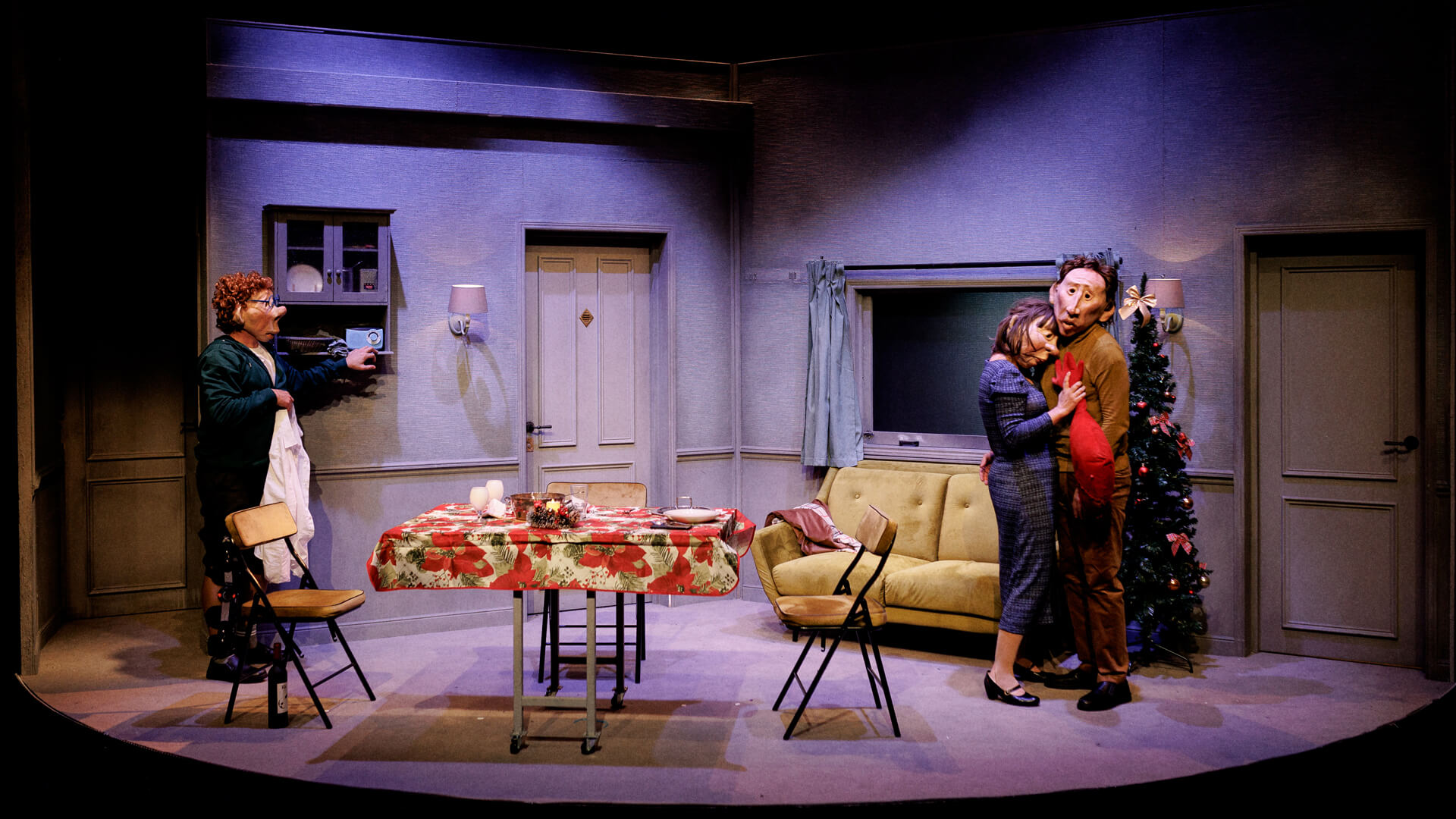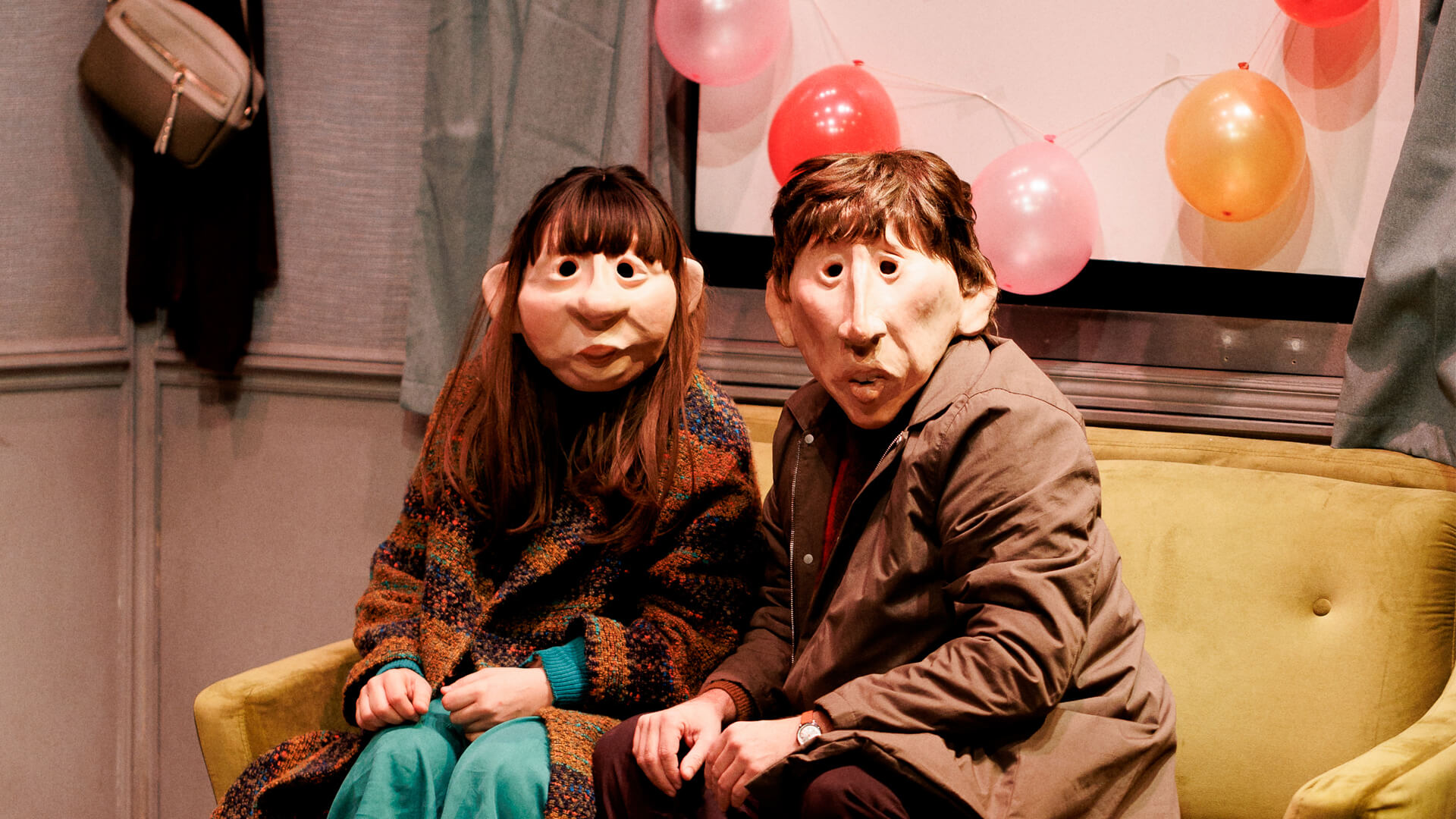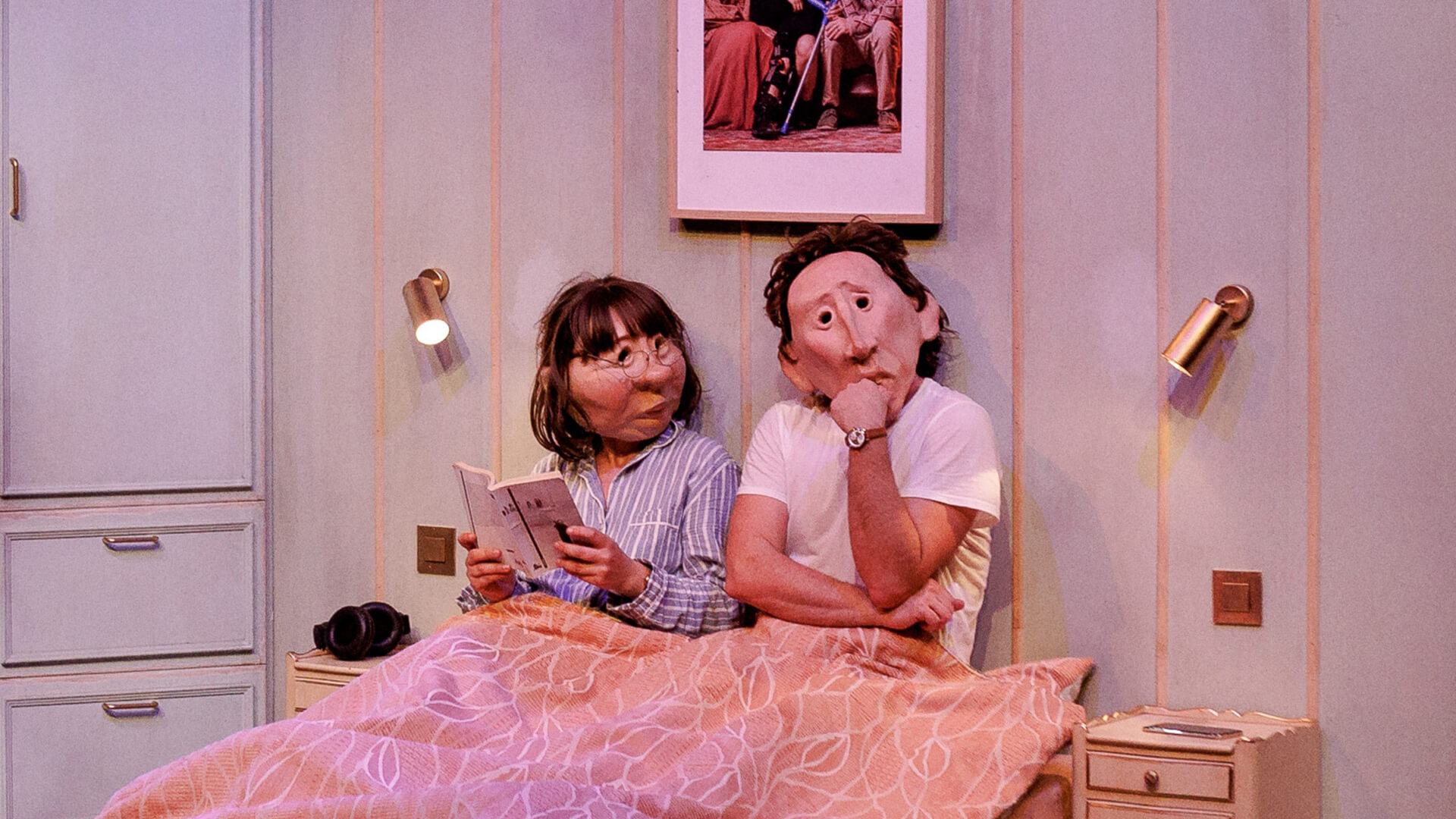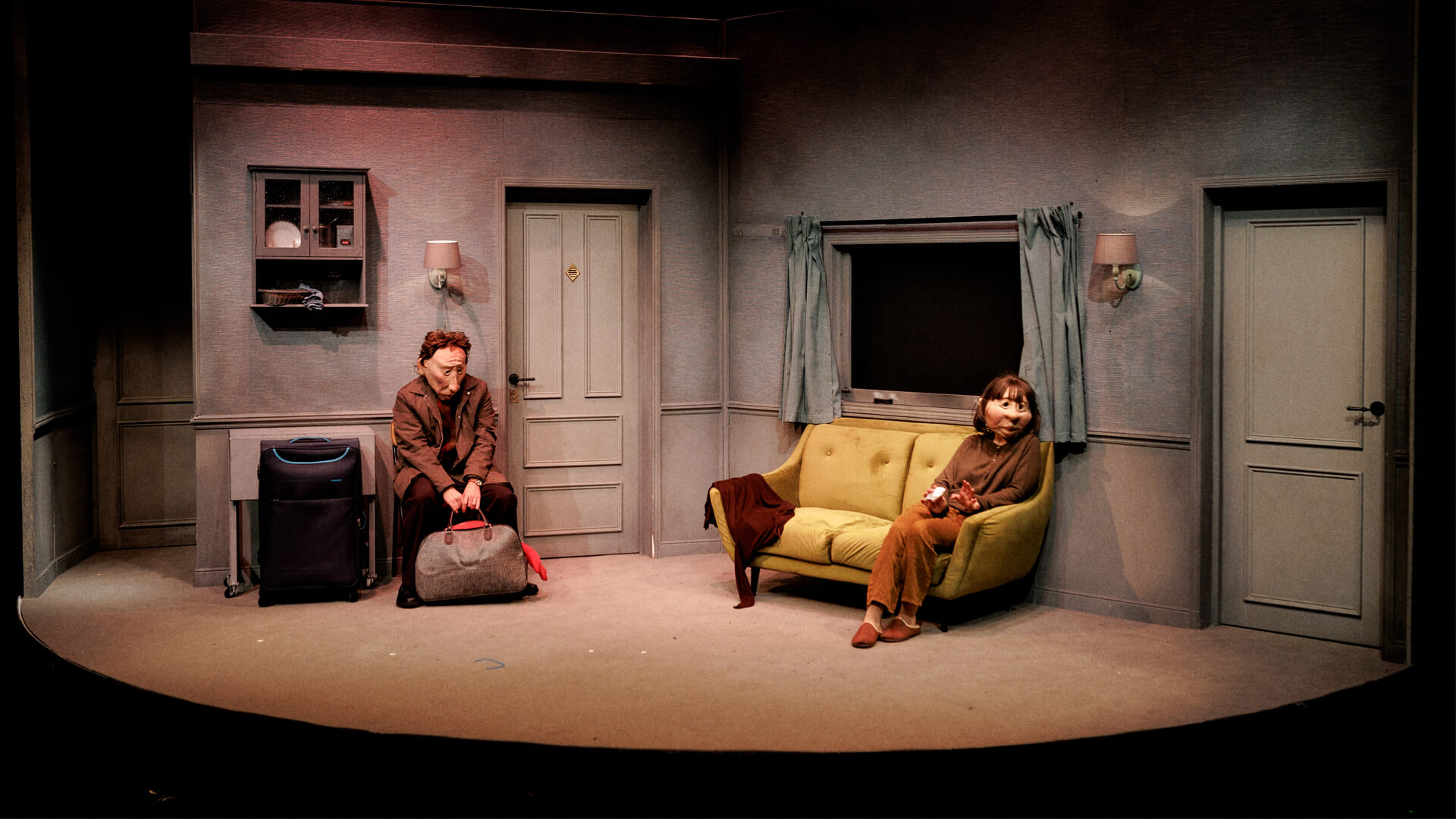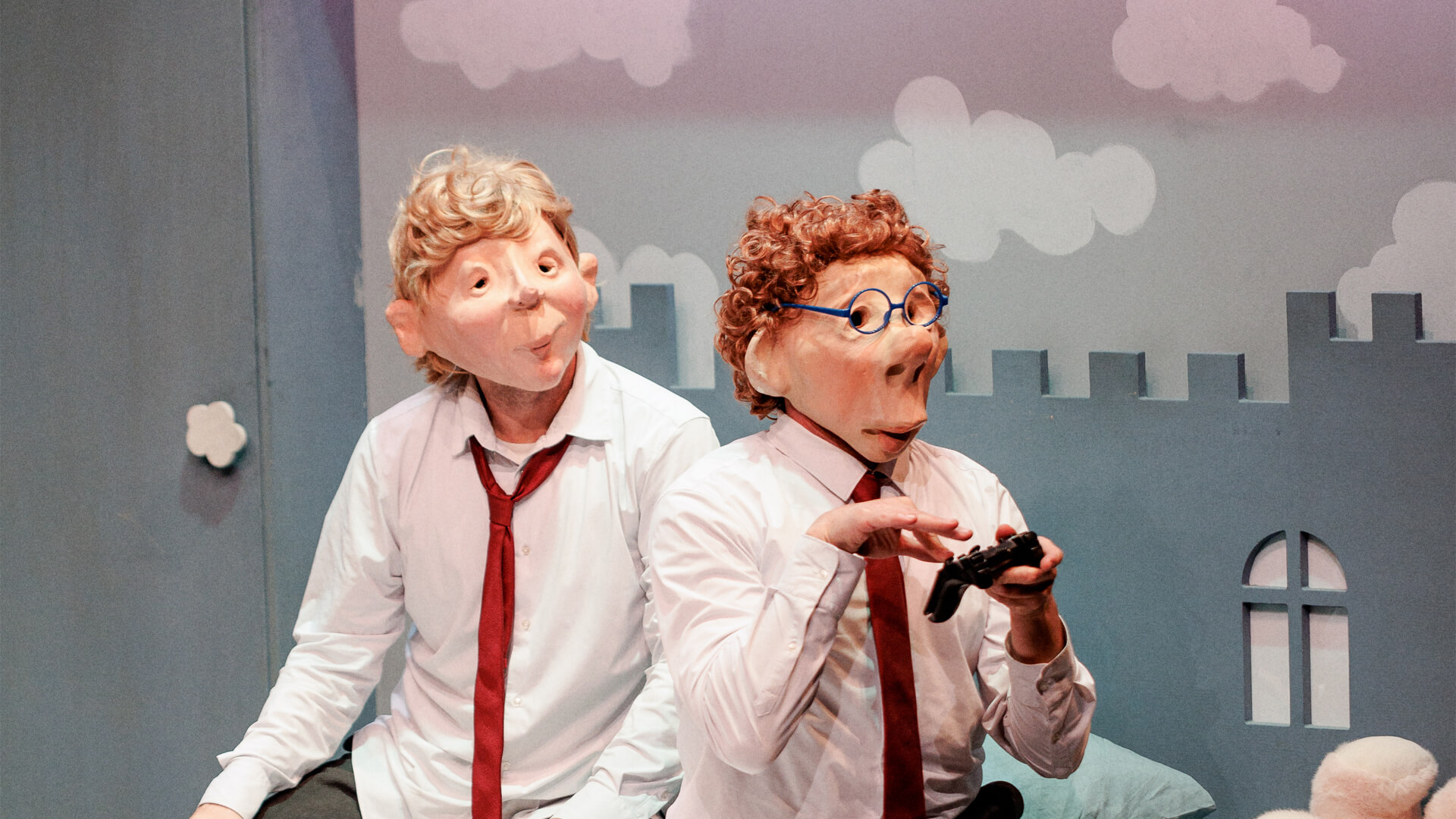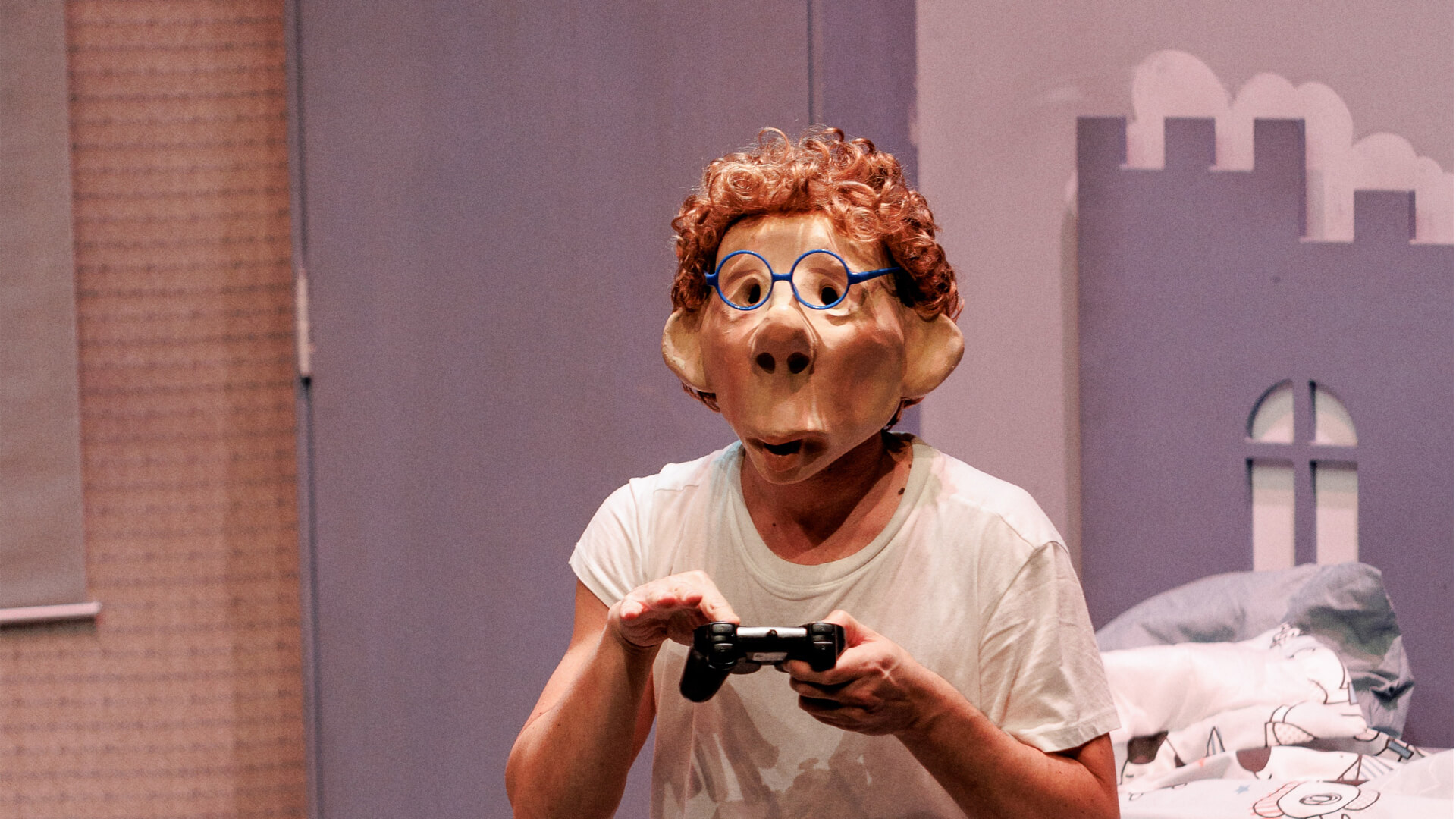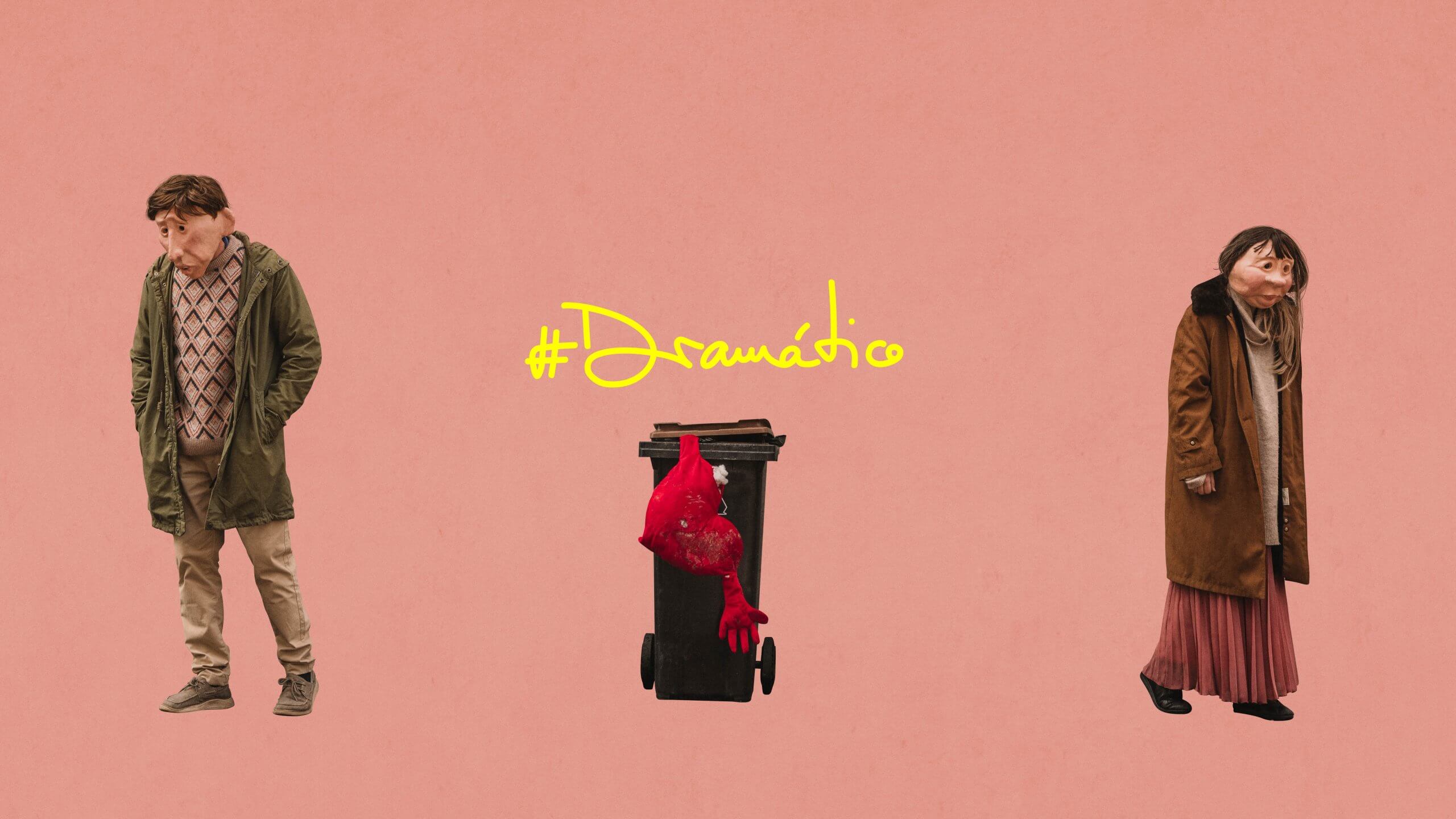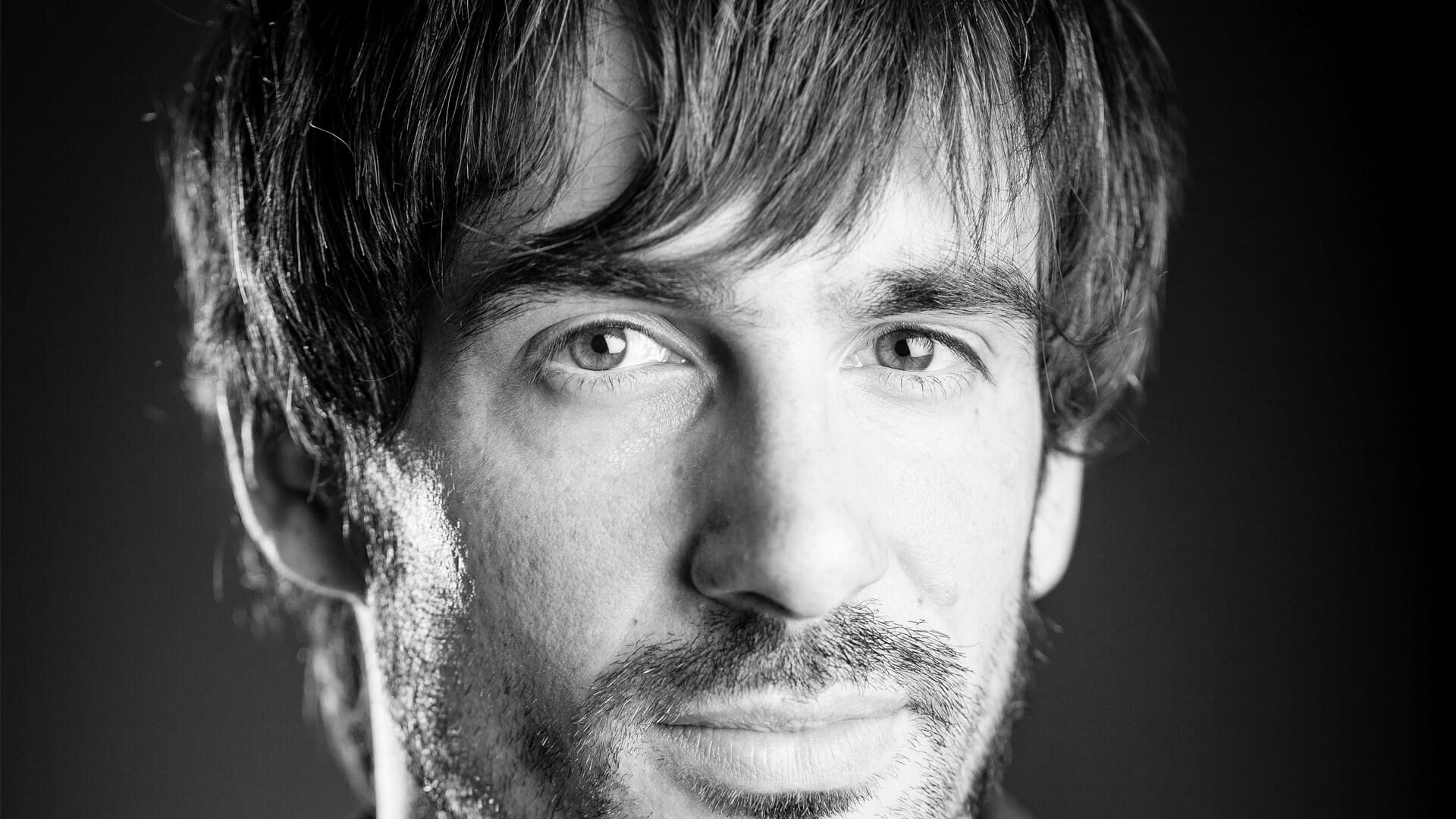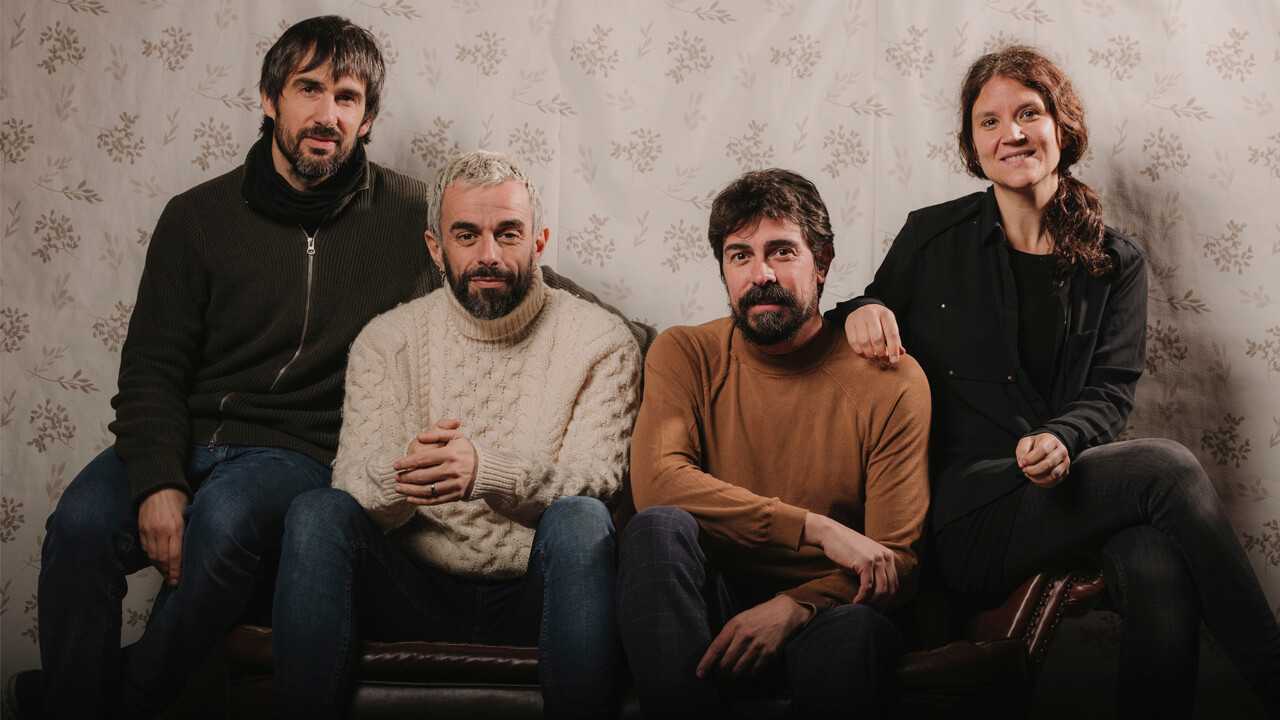Synopsis
Forever is the story of how a family drifts away from what it dreamed it would be. Reflecting the contradictions of love with humour and irony, it focuses on issues such as motherhood, education, sexuality and violence. On a revolving platform and with a very cinematographic language, Forever is a merry-go-round, the wheel of life.
But it is also a spiral which, as it turns, deepens the pain of its protagonists. How far can isolation drag a family down? Perhaps the most disturbing and exciting aspect is that this family’s story could be our own.
Authors’ note
Thirteen years later we are still musing over masks. There is something addictive about them. Although at first they seem to drastically reduce expressive possibilities –they cover the actors’ faces and prevent them from speaking – they make necessary a work of synthesis that is still very stimulating to us. That quest for the essence takes up most of the rehearsal time. Paradoxically, writing a piece without text is a lot harder than it may seem, to the point that acting or staging the piece are just the tip of the iceberg of the creative process.
In the case of Forever, in an almost unconscious way, we return to the family. Probably because the whole world can be condensed into family relationships and because, given the characteristics of the language we use, using contexts that are recognisable to the viewer saves explanations that would make the narrative drag.
This time, seeking to multiply the dramatic possibilities, we have opted for a revolving stage, which in turn works as metaphor of “twists and turns of life“. At a certain moment in the performance the characters seem to ask themselves, flabbergasted: how did it come to this?
We were trying to understand how can people reach their limits while living together in a way that would not be easy for the audience to pick a side. To understand why the characters make mistakes. To try to find empathy to avoid judging them. In short, we wanted to show, with a straightforward language, a situation in all its complexity. And, along the way, to laugh about our suffering and sympathise with our dramas.
Kulunka Teatro (Iñaki, Garbiñe, José and Edu)



